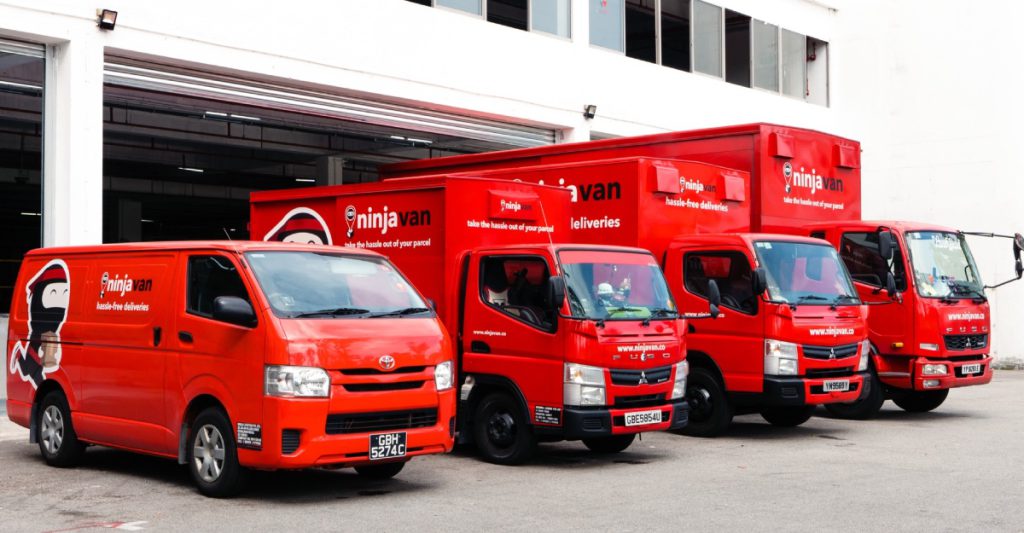Logistics provider Ninja Van has laid off about 12% of its Singapore workforce yesterday (August 12) in its latest round of job cuts.
The company previously conducted layoffs in April and July 2024, which affected both its regional tech team and Singapore-based staff.
According to CNA, the retrenchments were “not made lightly” and are part of long-term efforts to strengthen its business model and ensure sustainable growth amid ongoing global logistics challenges and intense competition across Southeast Asia.
It has also conducted a review of roles across the organisation to evaluate their alignment with Ninja Van’s future business.
The company is “streamlining” its headquarters functions to better support key growth areas, including tech-enabled business-to-business restocking and cold chain logistics, while ensuring smooth operations across all services.
These changes aim to position Ninja Van to remain agile, competitive, and future-focused.
Employees impacted in the latest round of layoffs will receive severance packages aligned with Singapore’s tripartite advisory, which states that those with two or more years of service are eligible for retrenchment benefits.
However, Ninja Van shared that it will extend severance packages to staff with less than two years of service as well.
In addition, it will also provide additional medical insurance and mental health support until December 31.
The company will consider redeployment for those with relevant skills and provide career transition support, including networking and reference letters.
Ninja Van’s valuation could be cut by half
Founded in 2014, Ninja Van currently operates in six markets across Southeast Asia and delivers 2 million parcels a day, according to its website.

It has raised US$578 million in a Series E round in 2021 from participants including Alibaba and B Capital Group.
The funding round lifted the company’s valuation to “well over” US$1 billion, earning it a place among Singapore’s growing roster of unicorns.
However, just days ago, reports emerged that Ninja Van is currently in talks to raise US$80 million in an internal funding round that could cut its valuation by about half to US$1 billion.
Investors are said to have secured preferential terms for a future exit.
Ninja Van’s situation, where existing backers are leading the round with such terms, has become increasingly common as companies in today’s tough funding climate struggle to draw fresh capital.
The downturn has been especially severe for Southeast Asia’s startup ecosystem. Across the region, startup fundraising sank to its lowest level in more than five years in Q1 2024, with equity investment plunging 41% year-on-year.
This marks a sharp reversal from the boom years, when Southeast Asian startups had raised US$6.5 billion by mid-September 2017, more than double the amount from the year before.
In Singapore, tech startups raised US$2.1 billion in 2024, down 56% from US$4.8 billion in 2023 and a steep 74% drop from US$8.1 billion in 2022, according to Tracxn.
Amid the prolonged funding downturn, many, particularly within the tech and startup scene, have turned to restructuring and workforce reductions, especially as uncertainty in the global macroeconomic environment persists.
Ninja Van’s recent retrenchments fit squarely within this broader trend.
Layoffs continue to be a significant trend in 2025
Apart from Ninja Van, 179 tech companies have collectively laid off over 80,945 employees this year, according to Layoffs.fyi, a website that tracks industry layoffs.
Giants like TikTok and Meta have carried out job cuts, with impacts extending to Singapore.
Earlier this year, the former laid off several employees from its Trust and Safety department as part of a global effort to streamline operations for long-term growth, which affected at least 12 staff members based in Singapore.
Meanwhile, Meta announced a 5% workforce reduction of their “lowest performing” staff in January, in preparation for what CEO Mark Zuckerberg described as an “intense year” for the company. Some affected employees in Singapore began receiving layoff notices in February, including those who had been on parental or medical leave in 2024.
Locally, homegrown firms such as PropertyGuru have also made cuts. In February, following its acquisition and transition to private ownership by EQT Capital, it laid off 174 employees, or about 12% of its workforce.
Facing retrenchment is never easy, given its emotional and financial impacts. If you’re impacted by layoffs, several resources are available to support you. For immediate support, you can turn to the Tripartite Alliance for Fair & Progressive Employment Practices and the National Trade Union Congress, which will ensure that your employment rights are protected.
You could also apply for the SkillsFuture Jobseeker Support scheme for temporary financial support, and receive payouts capped at a maximum of S$6,000 over six months.
- Read other articles we’ve written on Singaporean businesses here.
Featured Image Credit: Ninja Van Singapore